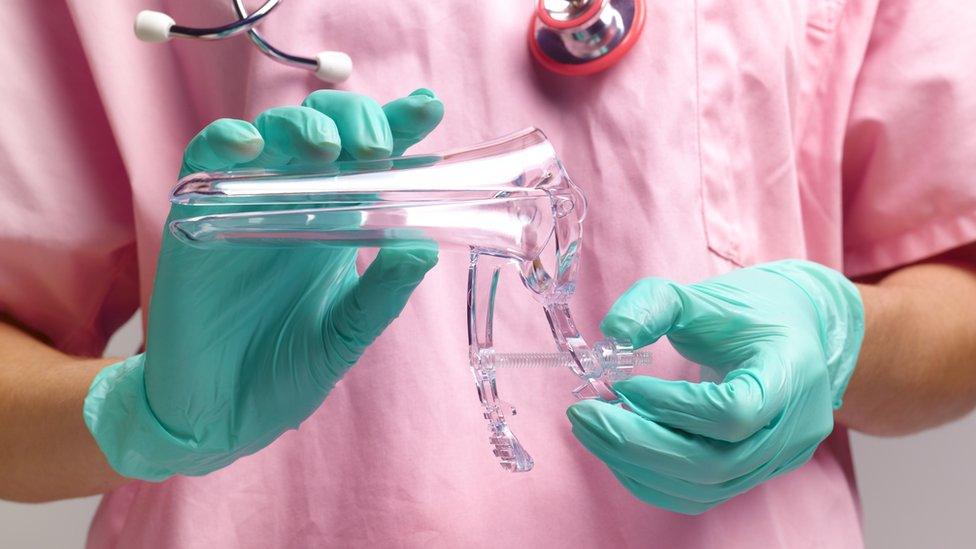Cervical screening saved my life - NI assembly member
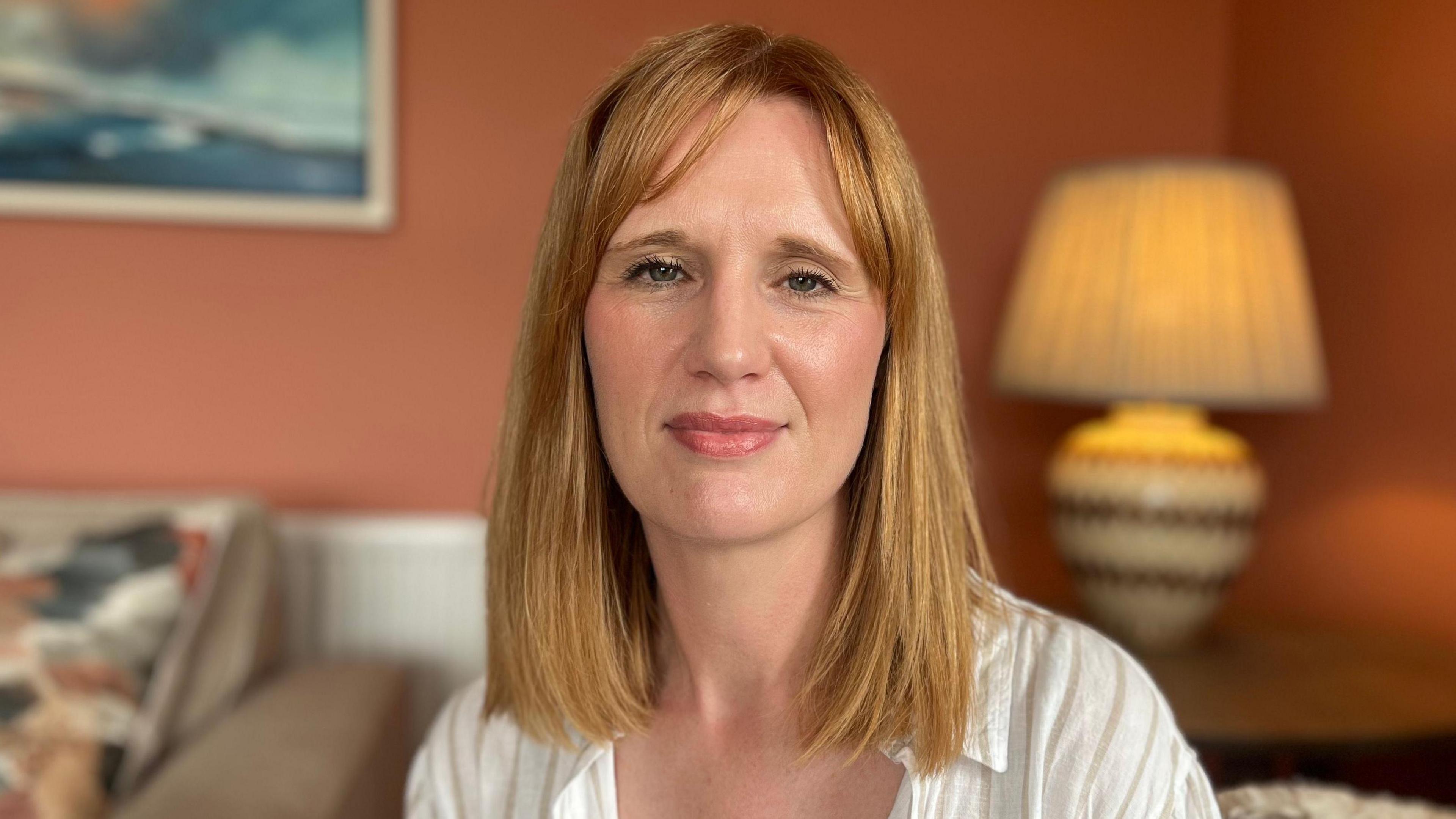
Alliance assembly member Michelle Guy was 44 when she was diagnosed with cervical cancer
- Published
"Shocking and really terrifying" - that's how it felt for Alliance Party assembly member Michelle Guy when she was diagnosed with cervical cancer in November 2023.
Guy, who was 44 at the time and experienced no symptoms, said the cancer was only caught because of cervical screening, external.
"It terrifies me to think if I was blasé about going for screenings, what that outcome could have been; how more developed things might have been when I realised that there was a problem," she said.
An average of 81 women were diagnosed with cervical cancer each year between 2017 and 2021, with about 20 deaths per year, according to the Northern Ireland Cancer Registry, external, which hold the most recent statistics.
The Alliance Party politician hopes to use her platform to encourage women to go for cervical screening.
"I'm relieved to have went through that process, relieved that the screening system worked for me; that it did find that cancer, and it did find it early," she said.
The mother-of-two said her diagnosis came as "a huge surprise" as her previous smear tests had always came back clear of abnormalities.
But a routine smear test two years ago showed there was "something wrong", which needed further investigation.
"To find myself in that position was initially unnerving," she said.
"But I was realistic that most people, they go through this, everything's fine.
"That's what the screening process is for, to identify things early."
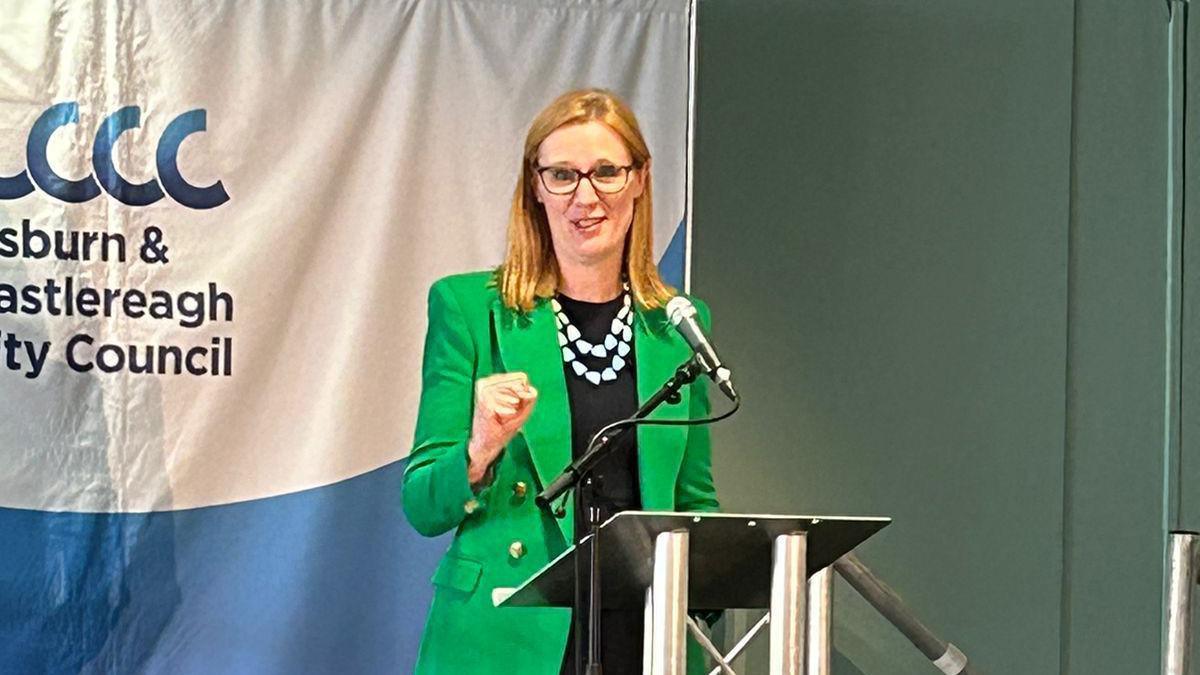
Michelle Guy underwent a hysterectomy in January 2024, while still working as an Alliance councillor for Lisburn and Castlereagh Council
A couple of weeks after having a colposcopy, external, she received a "terrifying" phone call while sitting in her kitchen.
It was from the hospital, asking her to come in but not to come alone.
"When you hear, don't come on your own, you know there's something wrong," she said.
She was told she had cervical cancer, external.
It was caught "at an early stage", which she said was a "relief", but it still led to months of anxiety until she completed treatment.
Her treatment was a hysterectomy, external, which she had in January 2024, while still working as a councillor for Lisburn and Castlereagh Council.
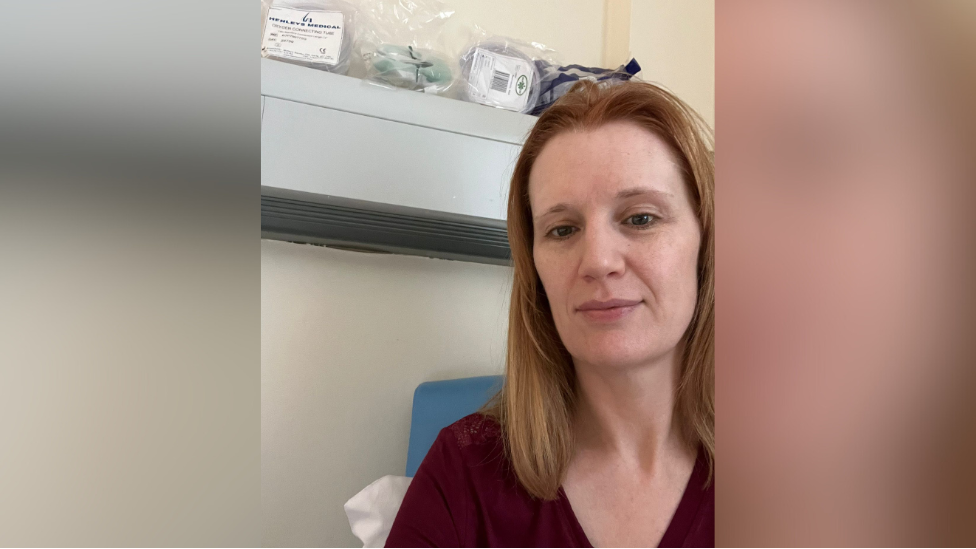
Michelle Guy pictured while in hospital
"We got a level of reassurance that the hysterectomy would be a cure - that was the language that my oncologist used - that they intended this to be a cure," she said.
"There isn't 100% certainty until you've had the procedure and all the different tests are complete, so I was just really anxious and determined to get it over with.
"You want that operation as soon as possible because nothing's getting better while you're waiting.
"I was lucky that it was contained and localised in a way that going through that surgery, as dramatic and painful as that is, I was very cognizant that things might have been worse had that diagnosis not come as early as it did."
What is cervical screening?
Cervical screening, external, while not a diagnostic test, is for people without symptoms and aims to detect early changes which could go on to develop into cervical cancer if left untreated.
In some cases, cancer may be found.
In December 2023, Northern Ireland introduced primary HPV cervical screening, although this was after Ms Guy's diagnosis.
It checks for an infection called human papillomavirus (HPV) - the cause of most cervical cancers.
This newer HPV test is regarded as a better indicator than cytology of identifying who is a higher risk of developing cervical cancer.
What are the symptoms of cervical cancer?
Screening can catch the cancer at an early stage, but the main symptoms are:
vaginal bleeding that's unusual for you – including during or after sex, between periods or after the menopause - or heavier periods than usual
changes to vaginal discharge
pain during sex or in the lower back, lower tummy or between the hip bones (pelvis)
Source: nhs.uk, external
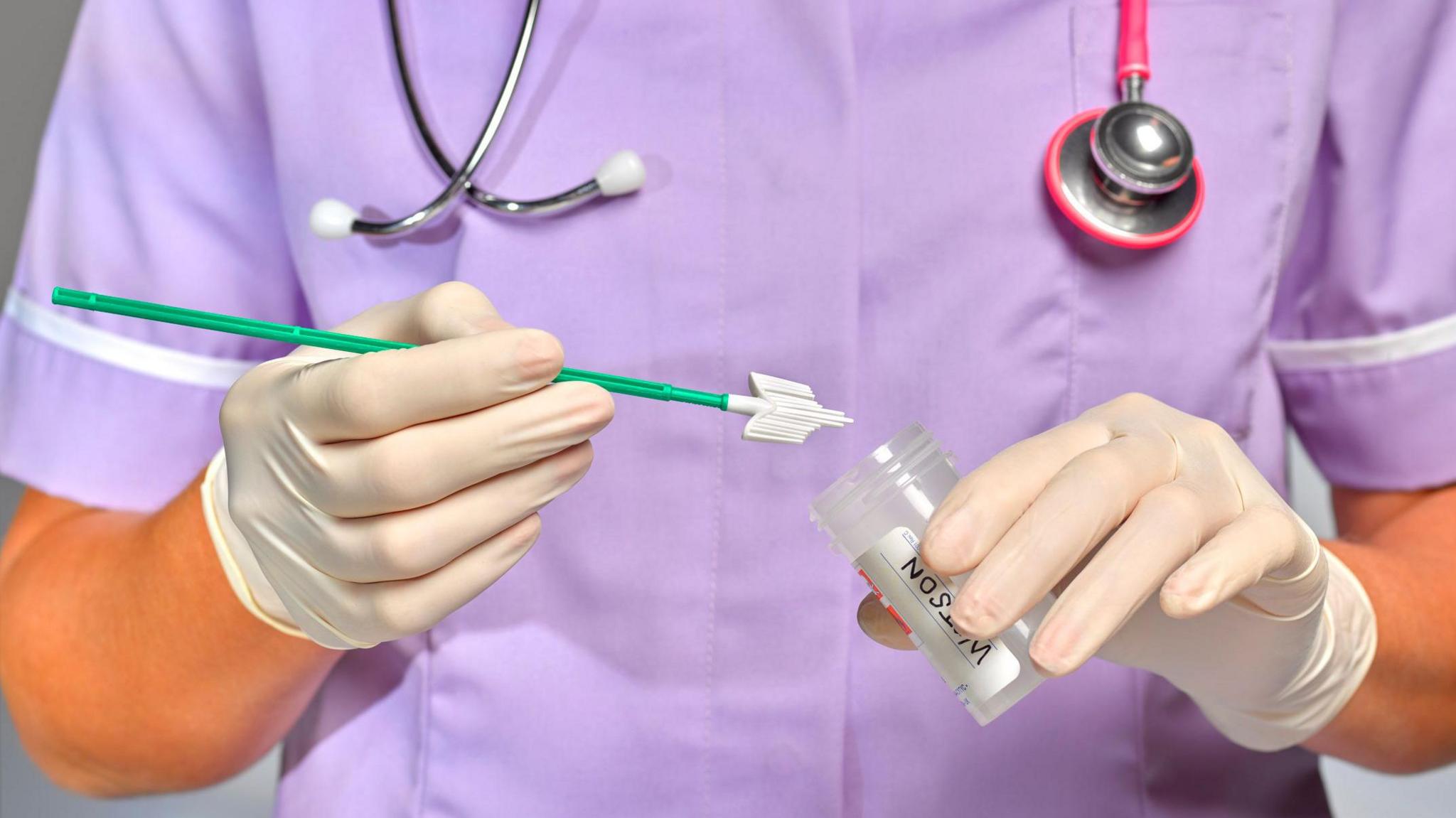
In December 2023, Northern Ireland introduced primary HPV cervical screening
Through her diagnosis and treatment she continued to work in politics because, not only did she feel it was "vocational", it was also a "distraction".
She said she had that "reflex to stay busy" and "wanted to get as far away from what I had been through as quickly as possible".
"It's that sense of I was running away from it as opposed to necessarily processing it," she added.
She said she also threw herself into experiences that she may not otherwise have done so, including replacing Sorcha Eastwood as the assembly member for Lagan Valley, external just eight months after her diagnosis.
'Hopefully do some good'
Michelle Guy understands that there is a lack of confidence around cervical screening, particularly after what happened in the Southern Trust when 17,500 women had to have their smear tests re-checked.
"Of course [that] would shake anybody's confidence in our system here - that women were going forward for their smears, and they were being let down," she said.
While she had kept her cervical cancer diagnosis private, she feels now is the right time to share her experience to "hopefully do some good" and encourage women to attend screenings.
"Not going for it and then potentially facing a diagnosis that I had and potentially one that's much more serious - that you knew you might have been able to prevent had you taken the opportunity of a screening - I really feel that that is a message that I didn't want to shy away from anymore," she said.
- Published11 December 2023
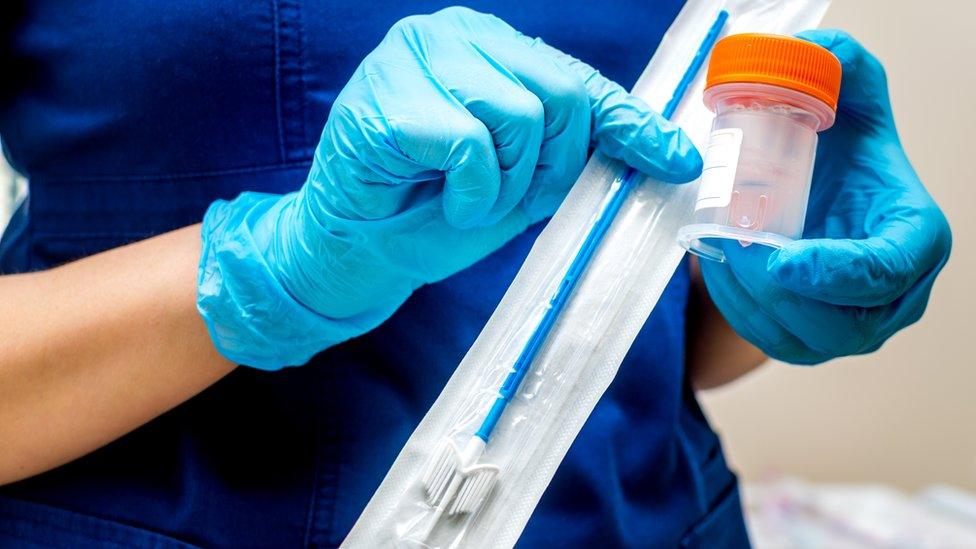
- Published9 October 2023
